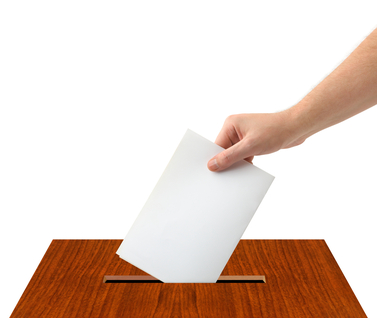To note most people are attached “at the hand” to their mobile devices is nothing shocking or new. What is relatively new is how exactly younger people are choosing to use their devices, specifically with regards to politics. Our world’s youth are big believers in social media as a vehicle for social change, with a new global survey, “Millennials: The Challenger Generation” by Havas Worldwide finding that 70% of young people believe social media is a “force for change.”

Posting Opinions...and More
Young people are more likely than their elder counterparts to become involved in politics via social media. Retweeting candidate posts, sharing links to causes they feel strongly about, posting opinions on various sites and social media channels, all via mobile devices, are just a few ways Millenials are getting involed. Mobile technology helps ensure young people know what’s going on in the world at any given moment and allows them a platform to engage on the issues. For example, 250 young people met at the third Global Youth Anti-Corruption Forum in 2012 to discuss how social media use can function in the global fight against corruption. Youth are monitoring the effectiveness of public service with social media in countries such as Paraguay and Brazil, where Facebook and Twitter are utilized for making official data available to the public.
Online & Mobile Petitions
Online and SMS text petitions are another way young people are getting (and staying) involved in political and social campaigns. New Jersey teen McKenna Pope launched a successful e-petition urging the CEO of Hasbro to feature boys on their Easy Bake Oven packages. The campaign was the result of Pope’s younger brother wanting the toy oven for Christmas, which featured only girls on packaging.
“I want my brother to know that it’s not ‘wrong’ for him to want to be a chef,” Pope wrote in her petition, which garnered 45,000 signatures. Hasbro has since created a gender-neutral version of the famous toy.
Two 23-year-olds in Latvia used technology and a grant from the U.S State Department to create an e-petition system allowing fellow citizens to submit and support proposals for policy change. The Latvian government looked at petitions supported by at least 20% of the population.
Mobile and Web-Based Apps
Young people are also turning to mobile and web-based apps as a way of encouraging social and political progress. Some 105 Pakistani students from different universities participated in a December 2012 Sanitation Hackathon that developed mobile-and web-based applications for water and sanitation utilities. The students found solutions for 13 water- and sanitation-related problems in their community.
Technology is a powerful tool in the political world, and one that undoubtedly will continue to evolve. With rise of social media, SMS technology, and general mobile device use, there’s no telling how the next generation of organizers, thinkers, and leaders will reinvent the future.

Posting Opinions...and More
Young people are more likely than their elder counterparts to become involved in politics via social media. Retweeting candidate posts, sharing links to causes they feel strongly about, posting opinions on various sites and social media channels, all via mobile devices, are just a few ways Millenials are getting involed. Mobile technology helps ensure young people know what’s going on in the world at any given moment and allows them a platform to engage on the issues. For example, 250 young people met at the third Global Youth Anti-Corruption Forum in 2012 to discuss how social media use can function in the global fight against corruption. Youth are monitoring the effectiveness of public service with social media in countries such as Paraguay and Brazil, where Facebook and Twitter are utilized for making official data available to the public.
Online & Mobile Petitions
Online and SMS text petitions are another way young people are getting (and staying) involved in political and social campaigns. New Jersey teen McKenna Pope launched a successful e-petition urging the CEO of Hasbro to feature boys on their Easy Bake Oven packages. The campaign was the result of Pope’s younger brother wanting the toy oven for Christmas, which featured only girls on packaging.
“I want my brother to know that it’s not ‘wrong’ for him to want to be a chef,” Pope wrote in her petition, which garnered 45,000 signatures. Hasbro has since created a gender-neutral version of the famous toy.
Two 23-year-olds in Latvia used technology and a grant from the U.S State Department to create an e-petition system allowing fellow citizens to submit and support proposals for policy change. The Latvian government looked at petitions supported by at least 20% of the population.
Mobile and Web-Based Apps
Young people are also turning to mobile and web-based apps as a way of encouraging social and political progress. Some 105 Pakistani students from different universities participated in a December 2012 Sanitation Hackathon that developed mobile-and web-based applications for water and sanitation utilities. The students found solutions for 13 water- and sanitation-related problems in their community.
Technology is a powerful tool in the political world, and one that undoubtedly will continue to evolve. With rise of social media, SMS technology, and general mobile device use, there’s no telling how the next generation of organizers, thinkers, and leaders will reinvent the future.